Introduction
Ultimate Guide to Mastiffs: Discover the essential aspects of these majestic giants
- Understand the unique history and origins of Mastiffs as a breed
- Learn about the different Mastiff breeds and their distinct characteristics
- Explore essential care tips to keep your Mastiff healthy and happy
- Dive into training techniques specific to Mastiffs' needs and temperament
- Get insights on grooming and maintaining the coat of these large dogs
- Find out what makes Mastiffs exceptional family pets and companions
- Access expert advice and resources to enhance your Mastiff experienceMacy Montana
1. Understanding the Mastiff Breed
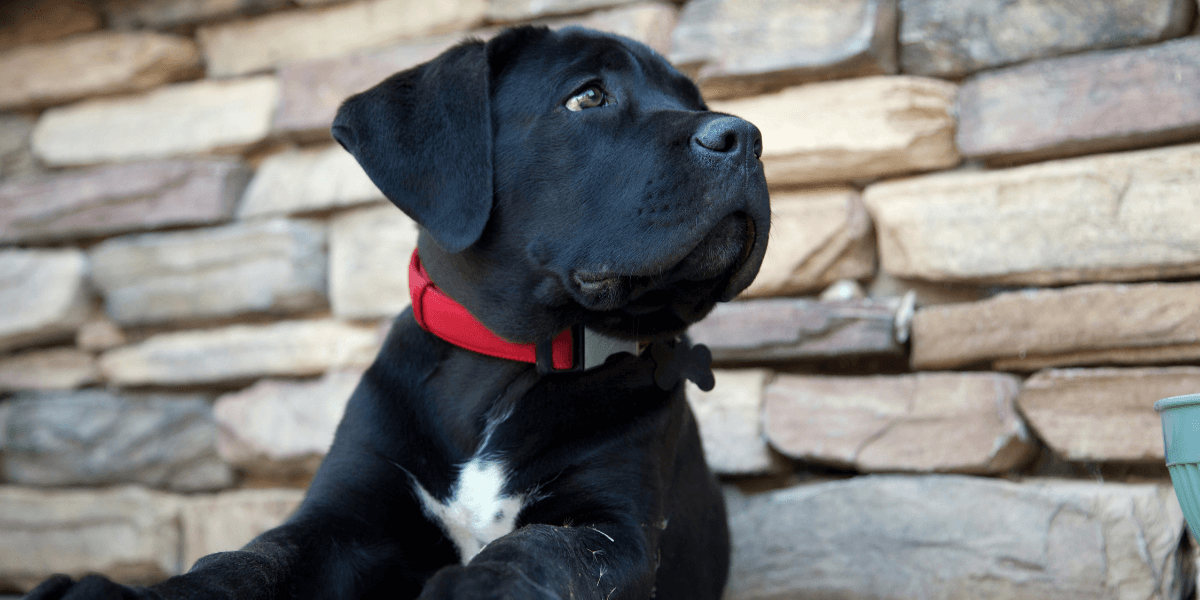
Mastiffs are large, powerful dogs with a calm and friendly temperament
Here’s a quick overview of the breed:
- Size and Weight: Males typically weighing between 160-230 pounds and females between 120-170 pounds
- Coat and Grooming: Their grooming routine is less intensive compared to some other breeds
- Exercise Needs: Mastiffs require moderate exercise to stay healthy and fit
- Health Concerns: Common issues include hip dysplasia and heart problems. Regular vet checks are crucial
- Temperament: Mastiffs are typically good with children and other pets if properly socialized
2. Mastiff Grooming Essentials
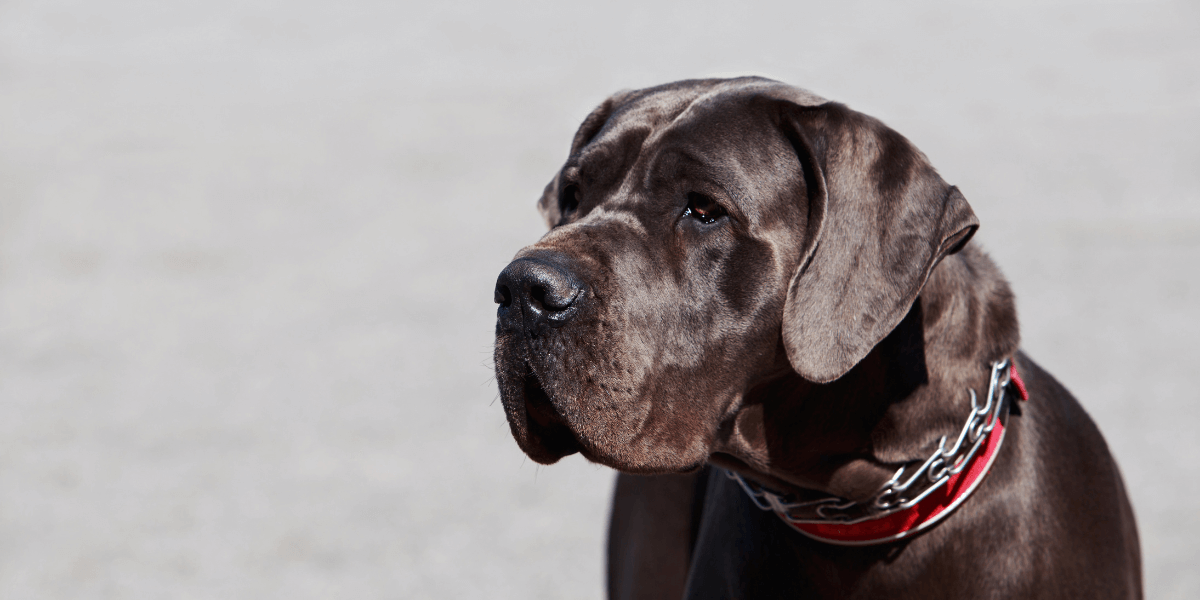
Though their grooming needs are relatively straightforward
Here’s what you need to know:
- Brushing: Brush your Mastiff’s coat weekly to reduce shedding and keep their fur healthy
- Bathing: Bathe your Mastiff as needed, usually every 6-8 weeks
- Nail Trimming: Trim your Mastiff’s nails regularly to prevent overgrowth and discomfort
- Ear Care: Check their ears weekly for signs of infection and clean them with a vet-recommended
- Dental Care: Brush your Mastiff's teeth regularly to prevent dental issues and bad breath
- Skin Care: Monitor their skin for dryness or irritation; use a vet-approved moisturizer if needed
3. Health Concerns for Mastiffs
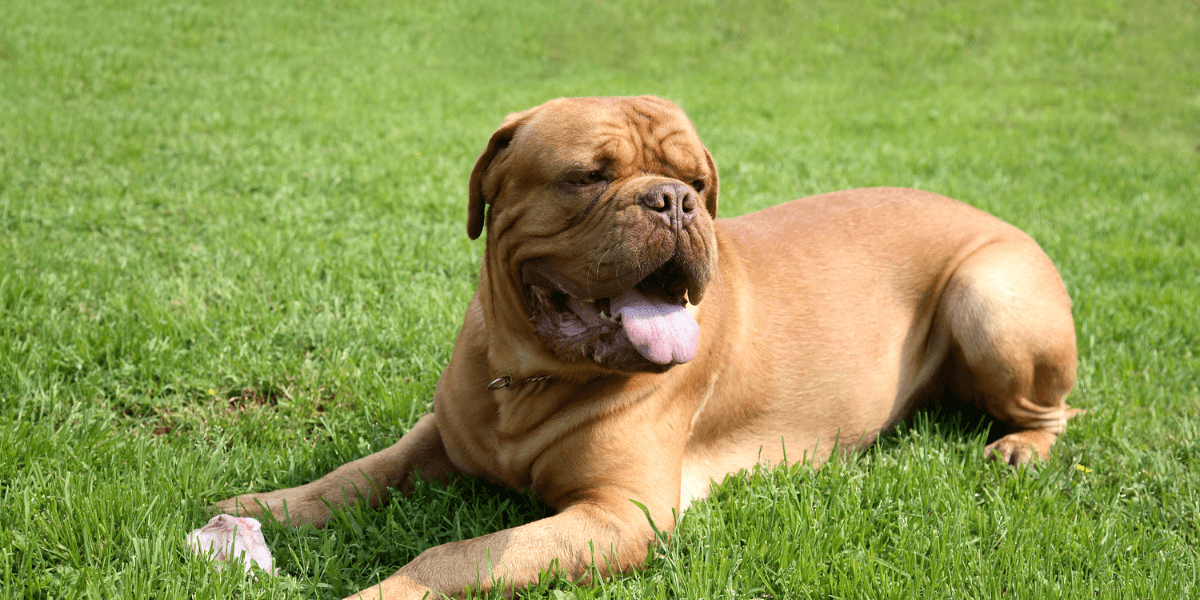
Mastiffs, like all breeds, are prone to specific health issues
Being aware of these can help you provide better care for your pet:
- Hip Dysplasia: Regular vet check-ups and maintaining a healthy weight can help manage this condition
- Bloat: Feed smaller, more frequent meals and avoid vigorous exercise immediately after eating
- Heart Problems: Mastiffs are prone to certain heart conditions, including dilated cardiomyopathy
- Obesity: Manage their diet to prevent weight gain, which worsens health issues
- Eye Health: Watch for eye issues like cataracts; consult a vet if needed
4. Training Your Mastiff
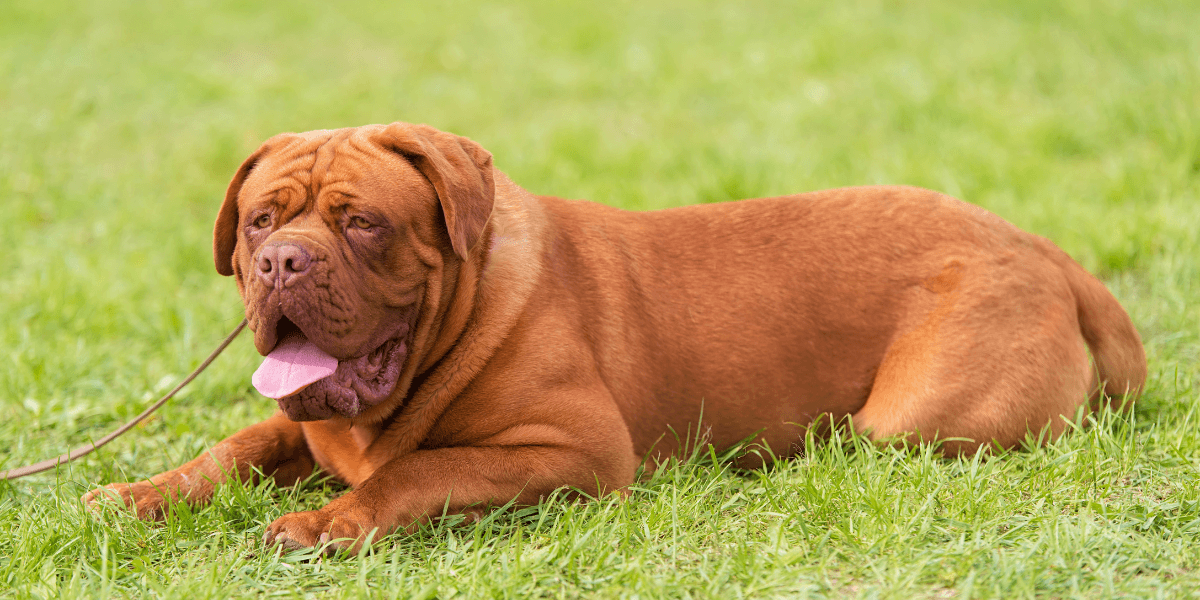
Training a Mastiff requires patience and consistency.
Mastiffs are intelligent and responsive to training when approached correctly:
- Start Early: Begin training your Mastiff while they are still a puppy to instill good behavior
- Positive Reinforcement: Use treats, praise, and rewards to encourage good behavior
- Socialization: Expose your Mastiff to different people, animals, and environments
- Consistency: Stick to a routine to reinforce commands and expectations effectively
- Patience: Mastiffs may take time to learn; remain patient and persistent during training
5. Nutrition and Feeding
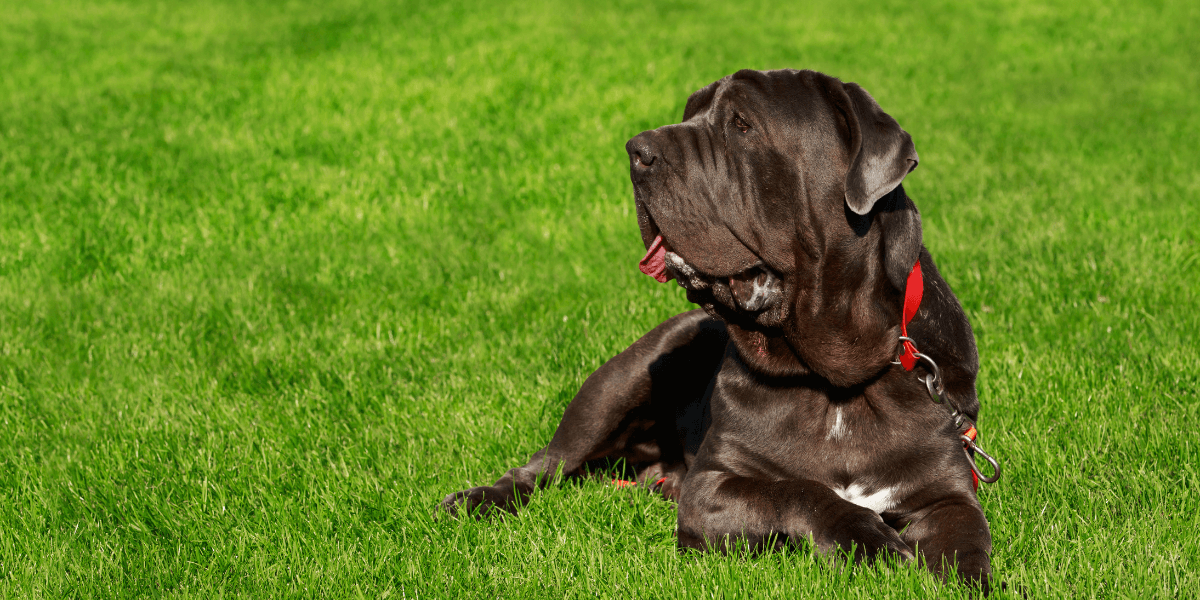
Proper nutrition is essential for maintaining your Mastiff’s health and well-being.
Here’s what to consider:
- High-Quality Diet: Choose a high-quality dog food that meets the nutritional needs of large breeds
- Portion Control: Monitor your Mastiff’s weight and adjust their food intake accordingly to avoid obesity
- Hydration: Ensure your Mastiff always has access to fresh water to stay hydrated
- Feeding Schedule: Divide their daily food into two or more meals to aid digestion
- Avoid Table Scraps: Do not feed them human food to prevent unhealthy weight gain and digestive issues
Explore the best diet tips for your Mastiff with this comprehensive Mastiff Feeding Guide from ProDog Raw.
6. Exercise Needs
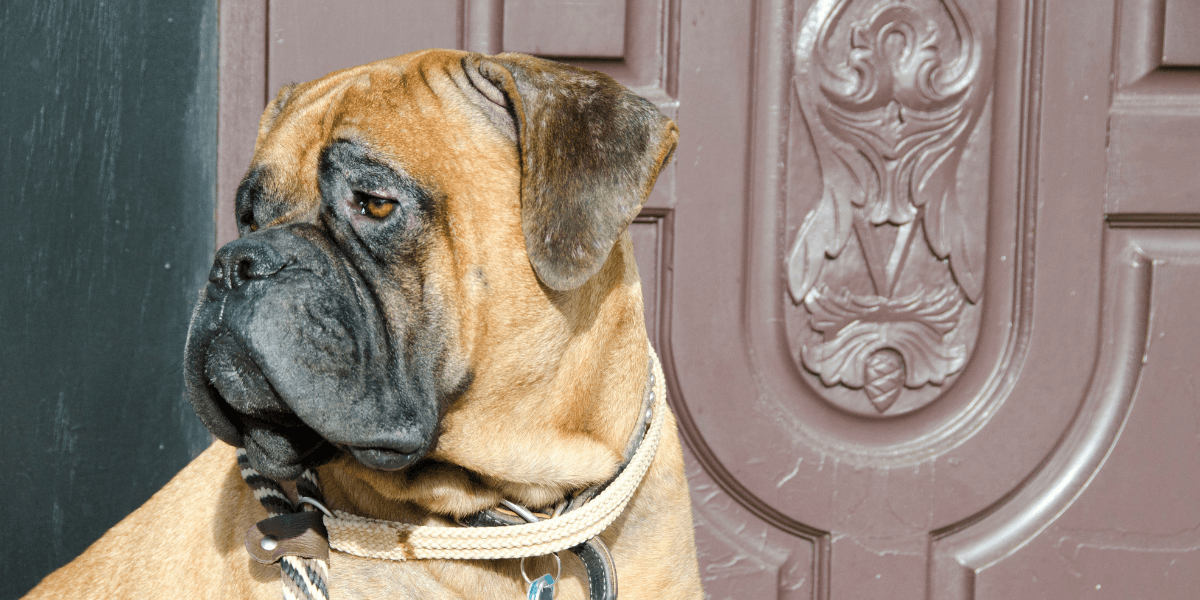
Although Mastiffs are known for their calm demeanor.
They still require regular exercise to stay healthy:
- Daily Walks: Provide your Mastiff with a daily walk to keep them physically active
- Playtime: Engage in gentle play sessions to help your Mastiff burn off excess energy
- Mental Stimulation: Provide toys and puzzles to keep their minds sharp and prevent boredom
- Low-Impact Activities: Opt for low-impact exercises to protect their joints from strain
- Avoid Overexertion: Be mindful of their limits to prevent overheating and injury during exercise
7. Living with a Mastiff
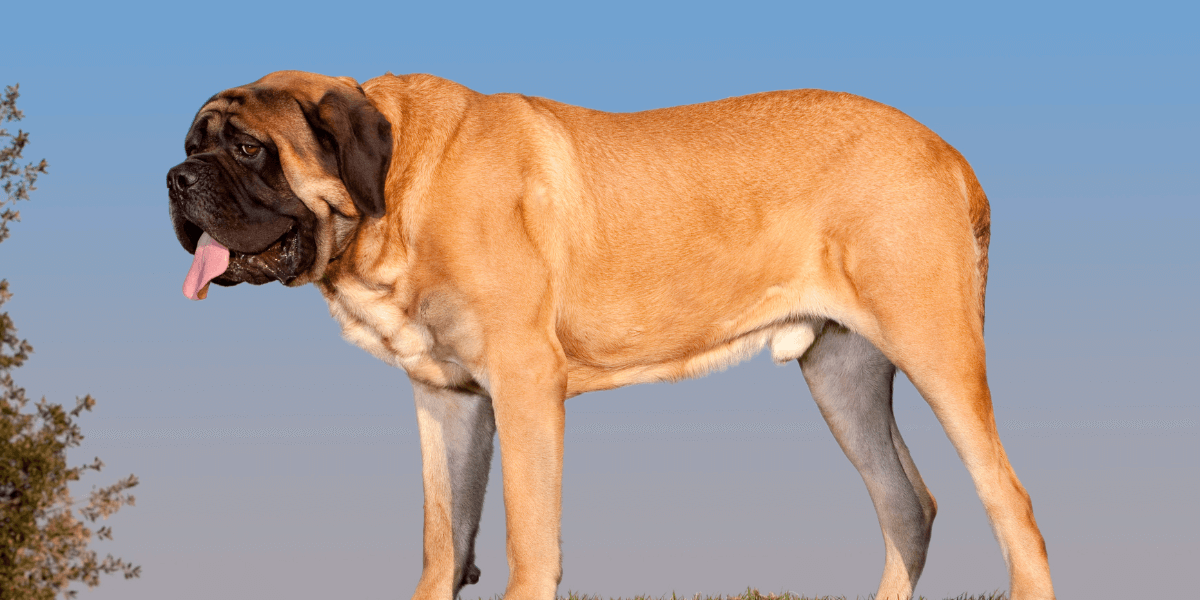
Mastiffs are wonderful companions but they do have specific needs when it comes to living conditions:
- Space: Ensure your home can accommodate their needs
- Comfort: Provide a large, comfortable bed for your Mastiff to rest
- Health Check-Ups: Regular vet visits are important to monitor their health and address any issues promptly
- Temperature Control: Ensure a cool, well-ventilated space as Mastiffs can be sensitive to heat
- Social Interaction: Spend quality time with your Mastiff to strengthen your bond and reduce loneliness
- Training and Boundaries: Establish clear rules and boundaries to manage their large size
- Safety Measures: Secure your home to prevent accidents, as Mastiffs can unintentionally cause damage
You can also explore why French Bulldogs Are Good with Kids for a comparison of family-friendly breeds.
FAQs
1. What is the Ultimate Guide to Mastiffs about?
- It's a comprehensive resource on Mastiff breeds, care, and training
2. How big do Mastiffs typically get?
- Mastiffs are large dogs, weighing 120-230 lbs, depending on the breed
3. What are common health issues in Mastiffs?
- They can suffer from hip dysplasia, bloat, and heart problems
4. How much exercise do Mastiffs need daily?
- Mastiffs require moderate exercise, around 30-60 minutes a day
5. Are Mastiffs good with children?
- Yes, they are generally gentle and protective of children
6. How do I groom a Mastiff?
- Regular brushing and occasional baths keep their coat healthy
7. What should I feed my Mastiff?
- High-quality dog food with balanced nutrients suited for large breeds
Conclusion
- Ultimate Guide to Mastiffs, Your go-to resource for understanding these noble giants
- Embrace the commitment needed to care for a Mastiff’s unique needs and traits
- Remember to regularly engage in training and socialization for a well-rounded dog
- Prioritize health checks and grooming to keep your Mastiff in top condition
- Consider the space and lifestyle required to accommodate a Mastiff comfortably
- Enjoy the rewarding experience of bonding with these gentle, loyal companions
- Stay informed with additional resources to enhance your Mastiff’s life and well-being
Share this guide with fellow Mastiff owners!
Leave a comment below to share your experiences or ask questions!
References
For more information:
- The Ultimate Guide to Mastiffs Dog Breeding
- A Guide to Preventing Joint Problems in Dogs
- Ideal Diet for Mastiffs – The Ultimate Guide to Mastiffs
- Best Exercises for Dogs with Hip and Joint Pain
- Ultimate Guide to Mastiffs
Thank you!



